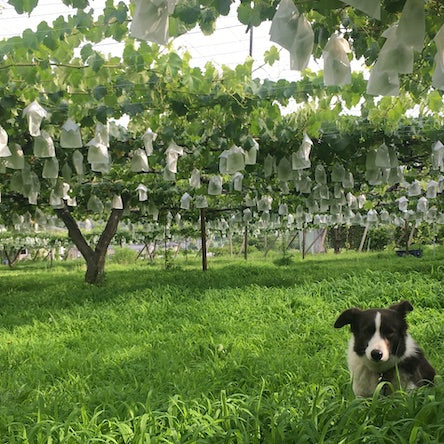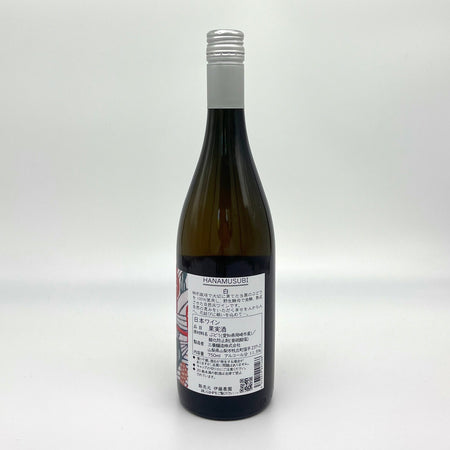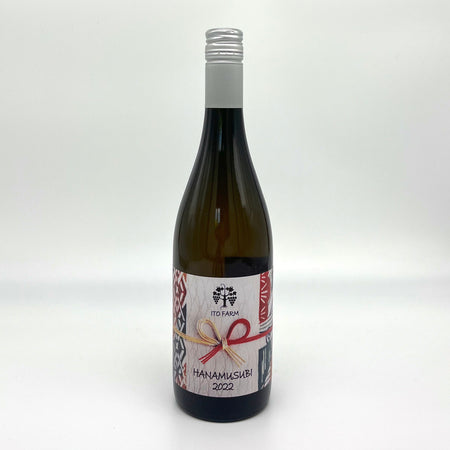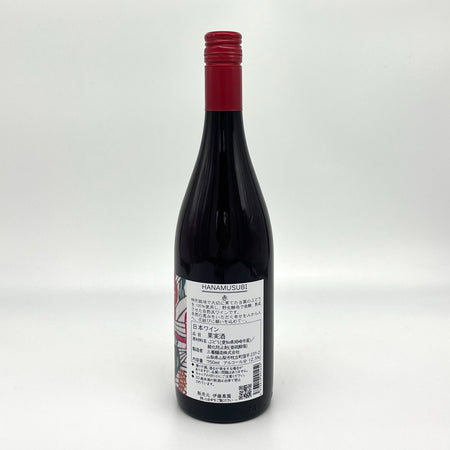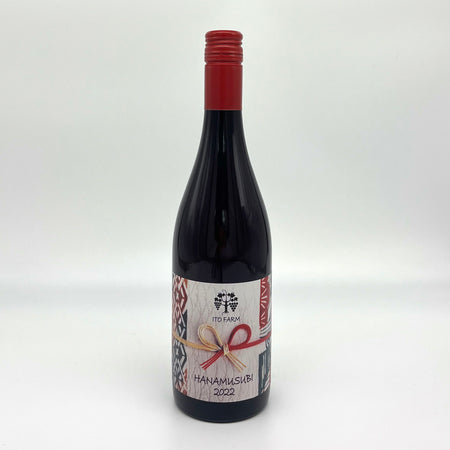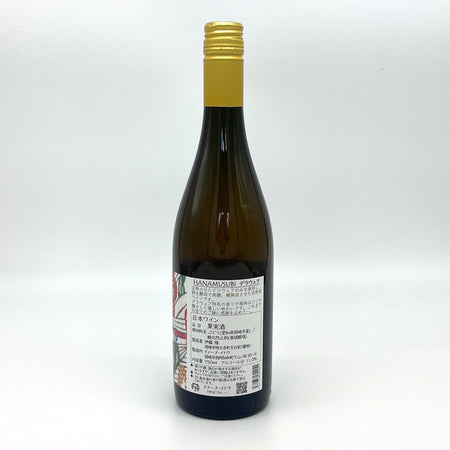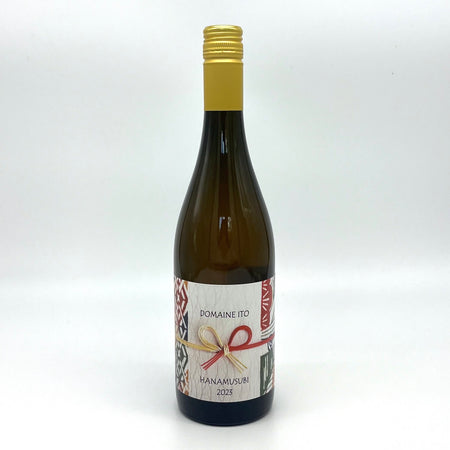Domaine Ito
Okazaki, Aichi
Domaine Ito is a natural wine project based in Okazaki, Aichi, run by Takashi Ito.
He began growing grapes in 2014 and started making wine in 2019. Until now, he has vinified his wines at wineries offering custom crush services, including Sanyo Winery in Yamanashi. In autumn 2023, he will finally establish his own winery, “Domaine Ito”, in Okazaki and begin producing wines entirely on his own site.
From Science to Wine
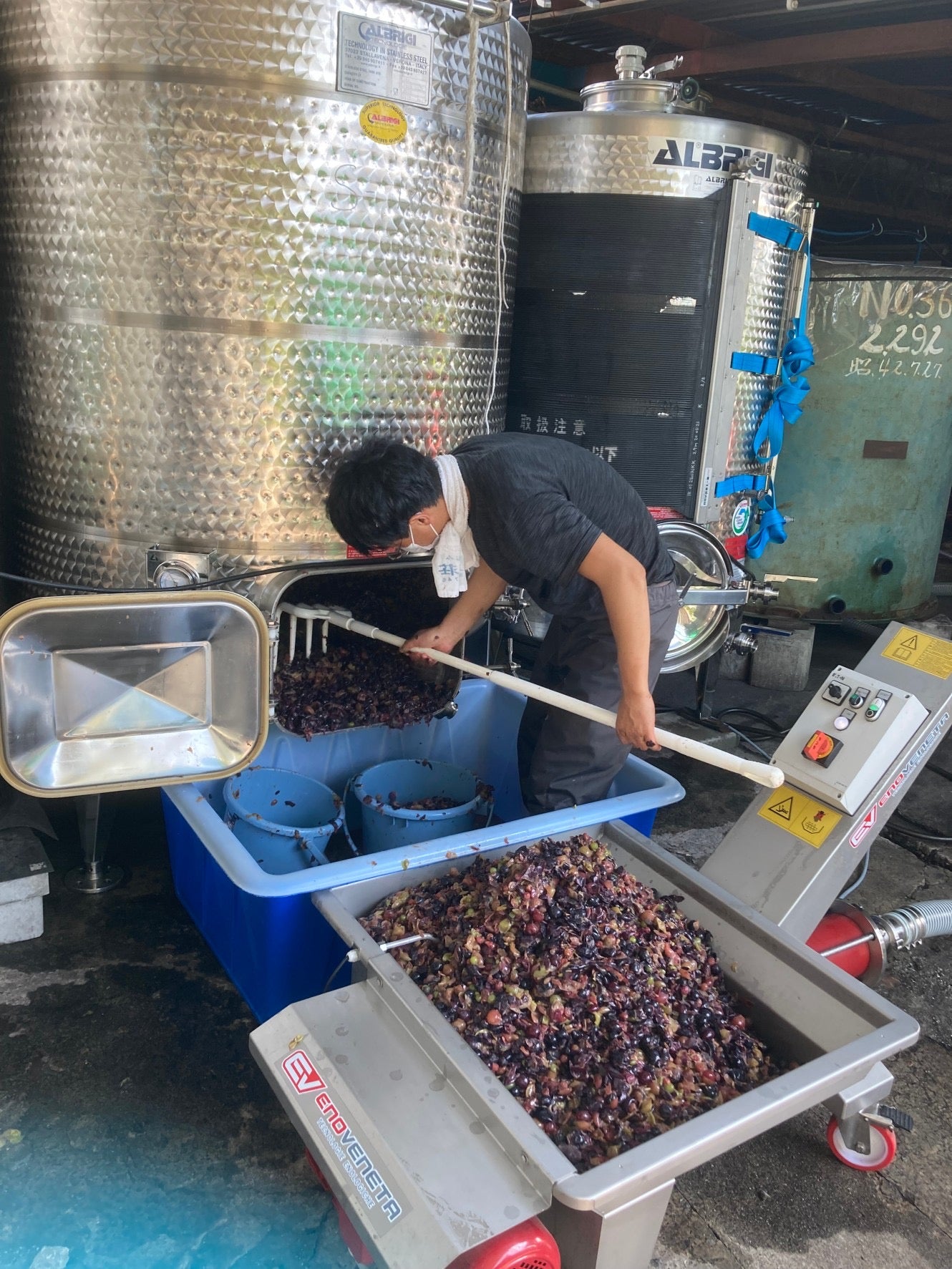
Takashi Ito first encountered wine while he was a university student. After graduating from a local high school, he enrolled at the University of Yamanashi, a prefecture renowned for grape growing and Japanese wine production. The university offered a program where he could study winemaking, and there he became fascinated by wine as a biological science.
“Some yeasts are resistant to alcohol, others to high pH environments. I found these differences fascinating and wanted to understand them more deeply.”
Although his interest in wine was growing, he majored in chemistry, studying in a fuel cell laboratory. After graduation, he returned to his hometown in Aichi Prefecture and worked as an office worker for 15 years.
Rediscovering Wine as Self-Expression
One weekend during his years as a company employee, Takashi casually visited a nearby liquor store hosting a natural wine tasting featuring only Chardonnay. That experience rekindled his passion for wine.
“The same white wine can express completely different aromas depending on the winemaker. With wine, I realized I could express myself.”
He also felt that the part of his character inherited from his mother — a sensitivity toward expression and craftsmanship — was still alive. In 2014, he made the decision to leave his job and begin growing grapes.
To deepen his knowledge, he trained and learned winemaking at several wineries, including Funky Chateau, COCO FARM & WINERY, Okuizumo Winery, and Sanyo Winery.
Vineyard
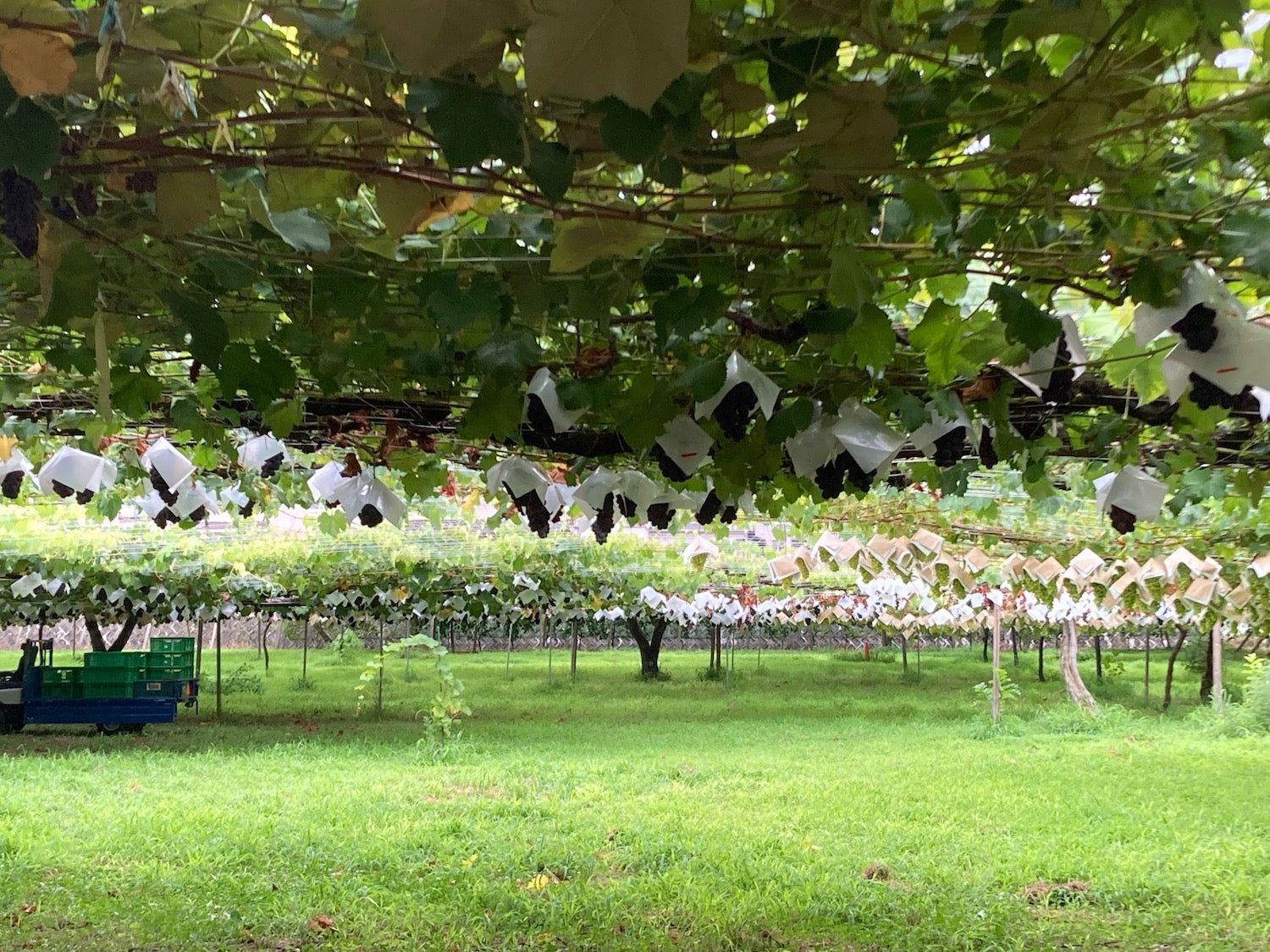
Takashi currently cultivates approximately 1 hectare of vineyards, growing Kyoho, Shine Muscat, Queen Nina, and Muscat Bailey A. In addition, a new 0.2-hectare plot is being planted with wine grape varieties, with plans to expand cultivation further in the future.
The vineyard lies in a quiet residential area in the northern part of Okazaki. It enjoys sunlight from sunrise to sunset, excellent ventilation, and well-drained sandy-gravel soils, making it a highly favorable environment for viticulture.
Yield Limitation as a Core Principle
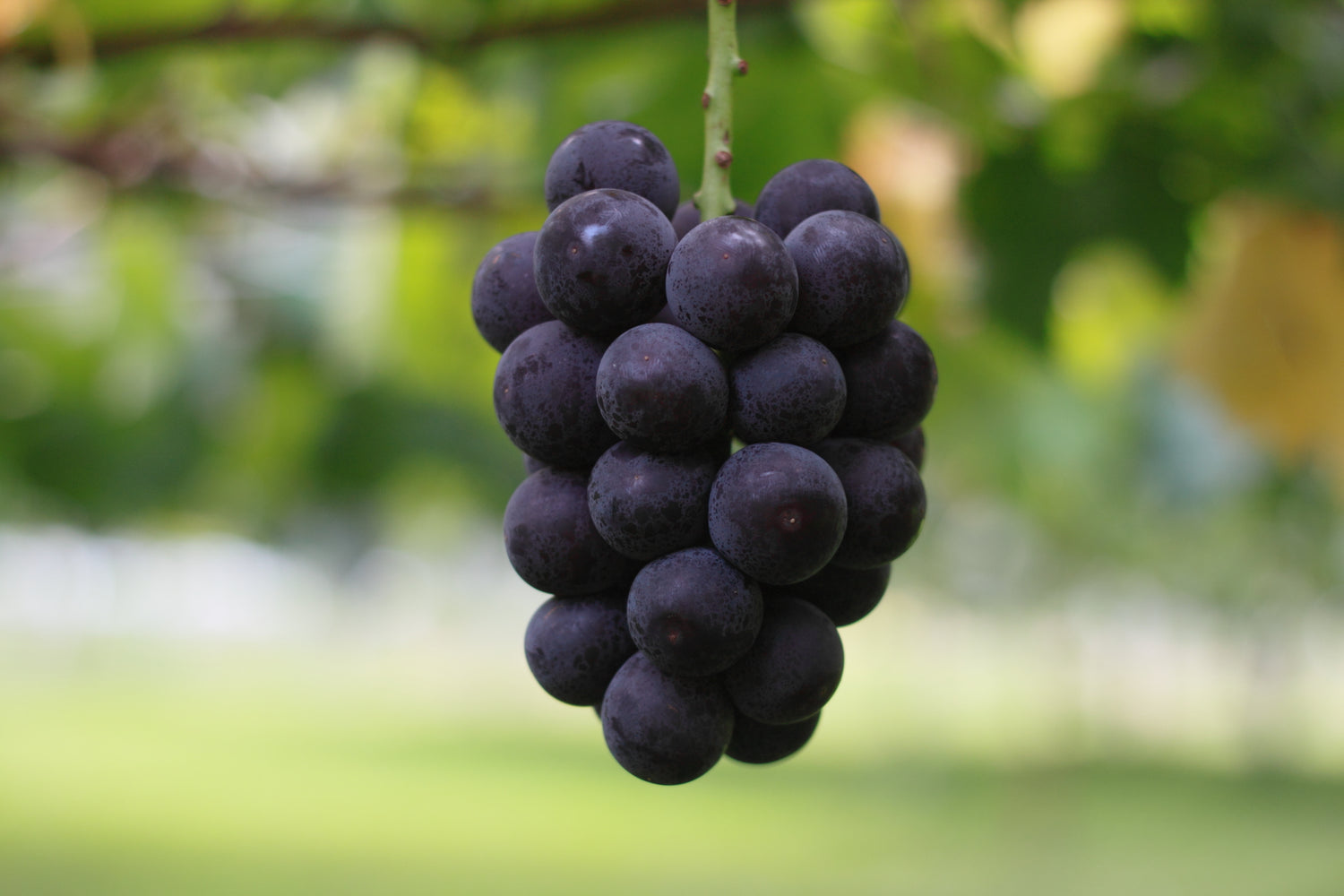
Takashi believes that the key to quality grapes is strict yield limitation. Based on his own experiments, he considers 800 kg to 1 ton per 0.1 hectare to be ideal.
“I started with 2 tons, but the grapes lacked flavor. The next year I reduced it to 1.5 tons, and they reached supermarket quality. When I reduced it further to 800 kg, someone told me they were the best grapes they had ever tasted. Different growers have different ideas, but I trust my experience.”
Farming in Harmony with Nature
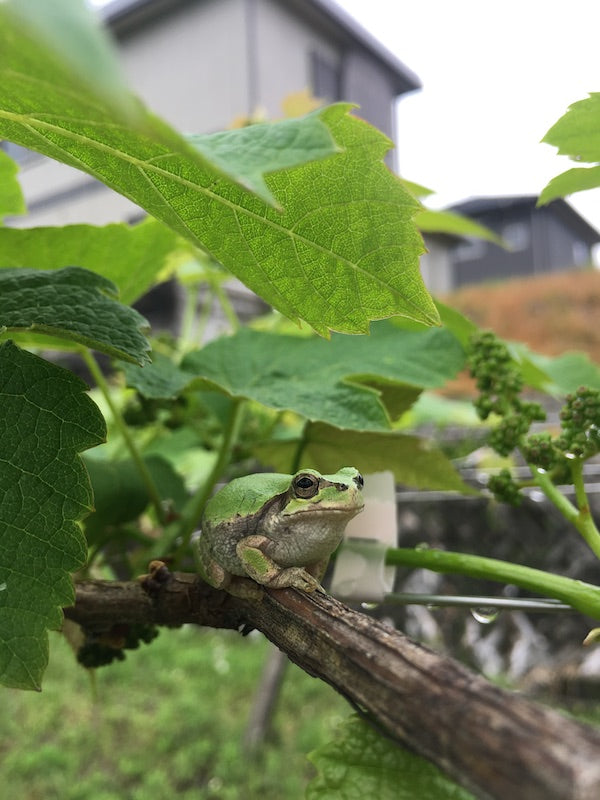
Takashi does not use herbicides and is working toward minimum pesticide use within grass-growing organic farming. His approach reflects a belief that insects and weeds each have their own role in the ecosystem.
“Some insects harm grapes, others help them. When I followed the prefectural pest control calendar, I saw countless insects die. I also felt uneasy about how quickly pesticides cured diseases. Insects and weeds have their own meaning. When weeds die, they return to the soil, and the cycle continues.”
This philosophy of coexisting with the sun, rain, insects, and weeds is embodied in the Domaine Ito logo, which depicts a grapevine and the cycle of nature. It symbolizes grapes growing through the blessings of the earth, the energy of the sun, the climate, and other living organisms.
Takashi’s grapes have also been recognized beyond the winery: Delaware grapes from Ito Farm were supplied to the athletes’ village at the Tokyo 2020 Olympic and Paralympic Games.
Winemaking Philosophy
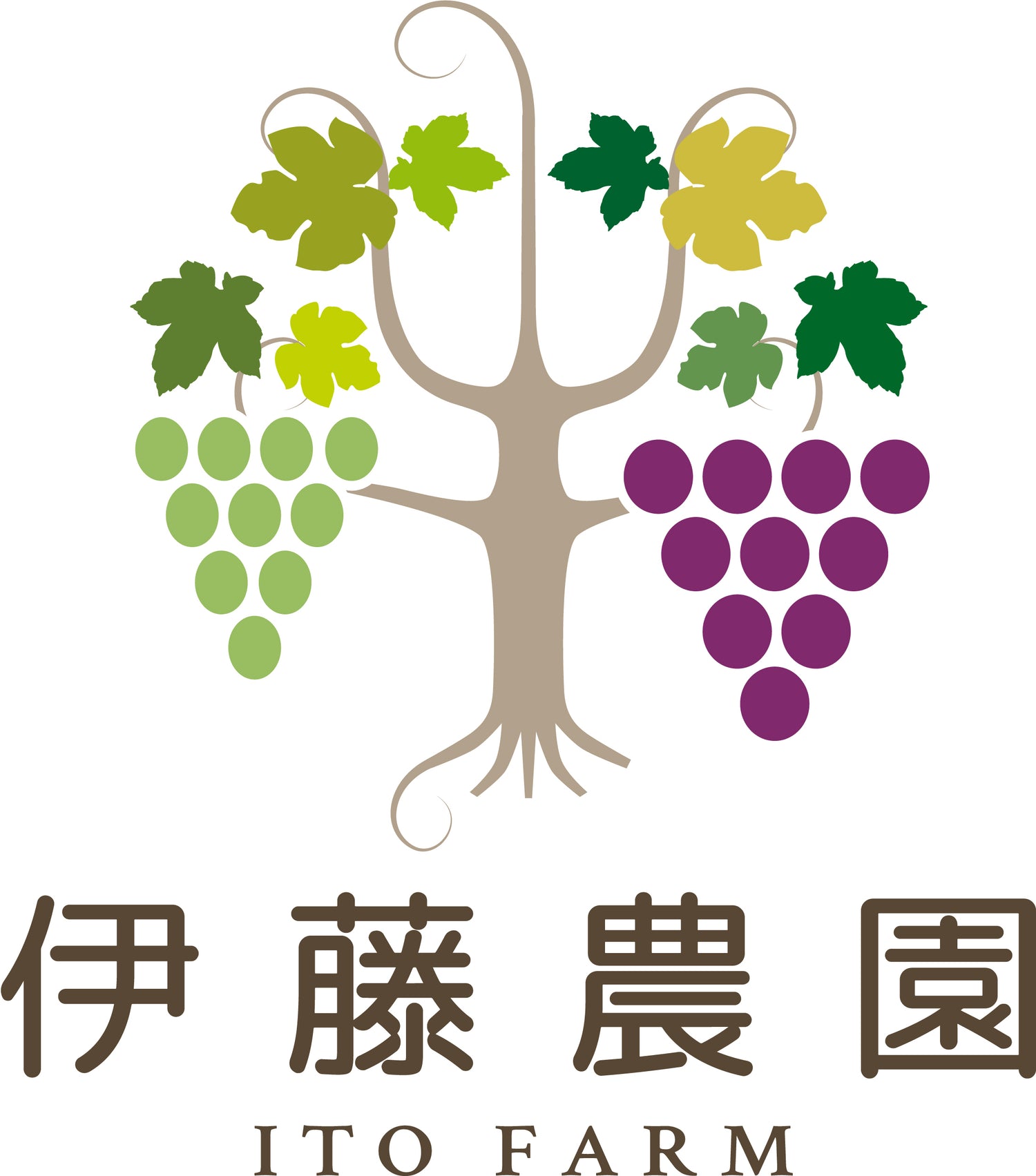
Takashi aims to produce wines that are fun and easy to drink, designed to pair naturally with everyday Japanese cuisine and to be enjoyed casually by people from all walks of life.
“Wine is like a time capsule. I want to capture the aroma of grapes such as Kyoho exactly as they grow in the vineyard. Customers who eat our grapes in summer should be able to drink wine made from the same grapes and remember that moment.”
To preserve this connection, he does not chaptalize or acidify his wines, and sulphites are kept to a minimum, added only at bottling.
Influence and Natural Winemaking
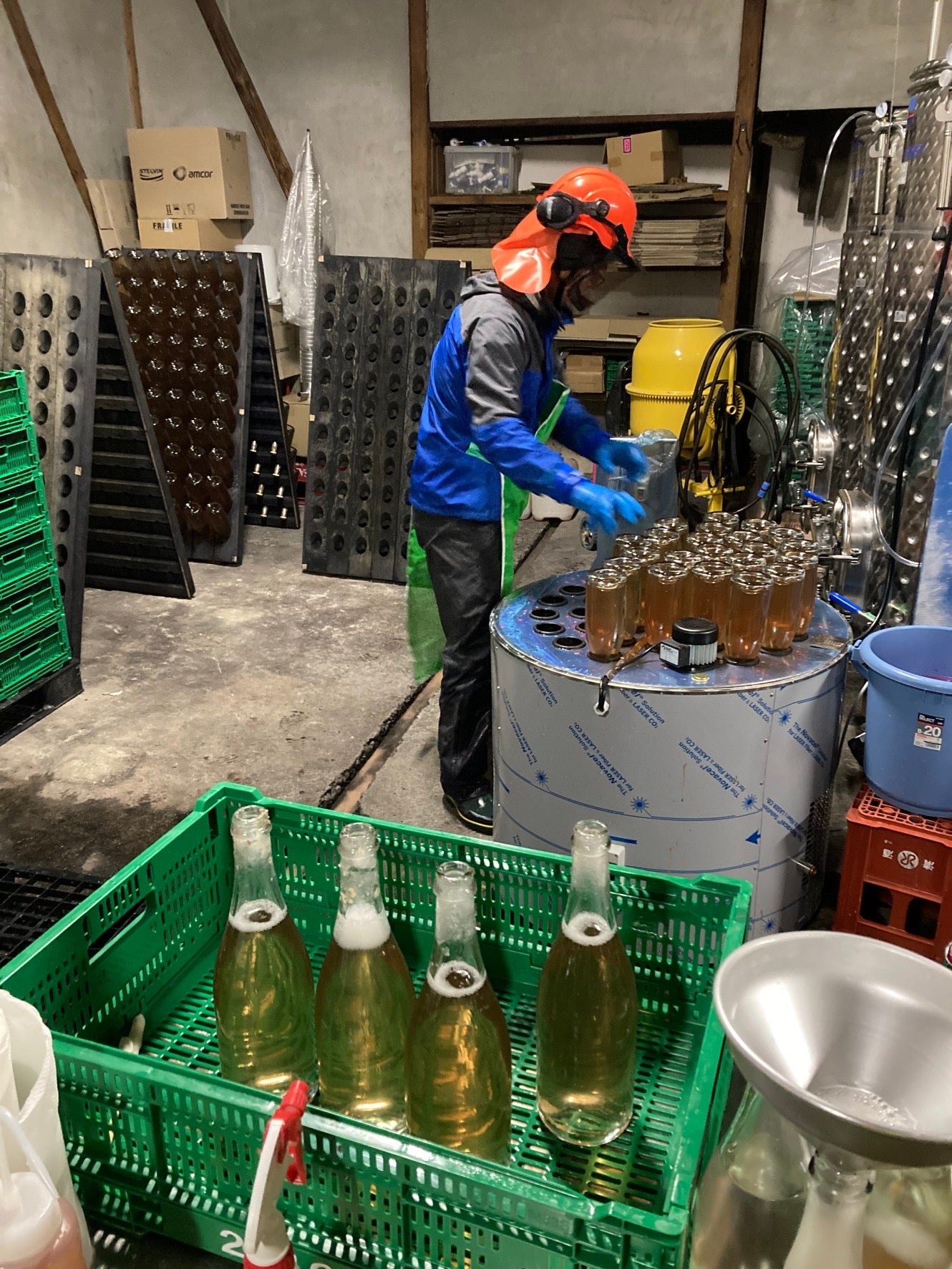
The winemaker who has had the greatest influence on Takashi is Toyohiko Kanehashi of Funky Chateau in Nagano, where Takashi trained.
“In natural winemaking, there is very little humans can control. Everything depends on the potential of the grapes. That is why you must understand nature.”
Takashi uses no selected yeasts, accepting that vintage variation is unavoidable. Even in difficult years, he believes his responsibility is to bring out the best possible expression of the grapes.
“I stay close to the grapes and support the work of nature and the creatures in the vineyard. This is how I make wine.”
Domaine Ito and Beyond
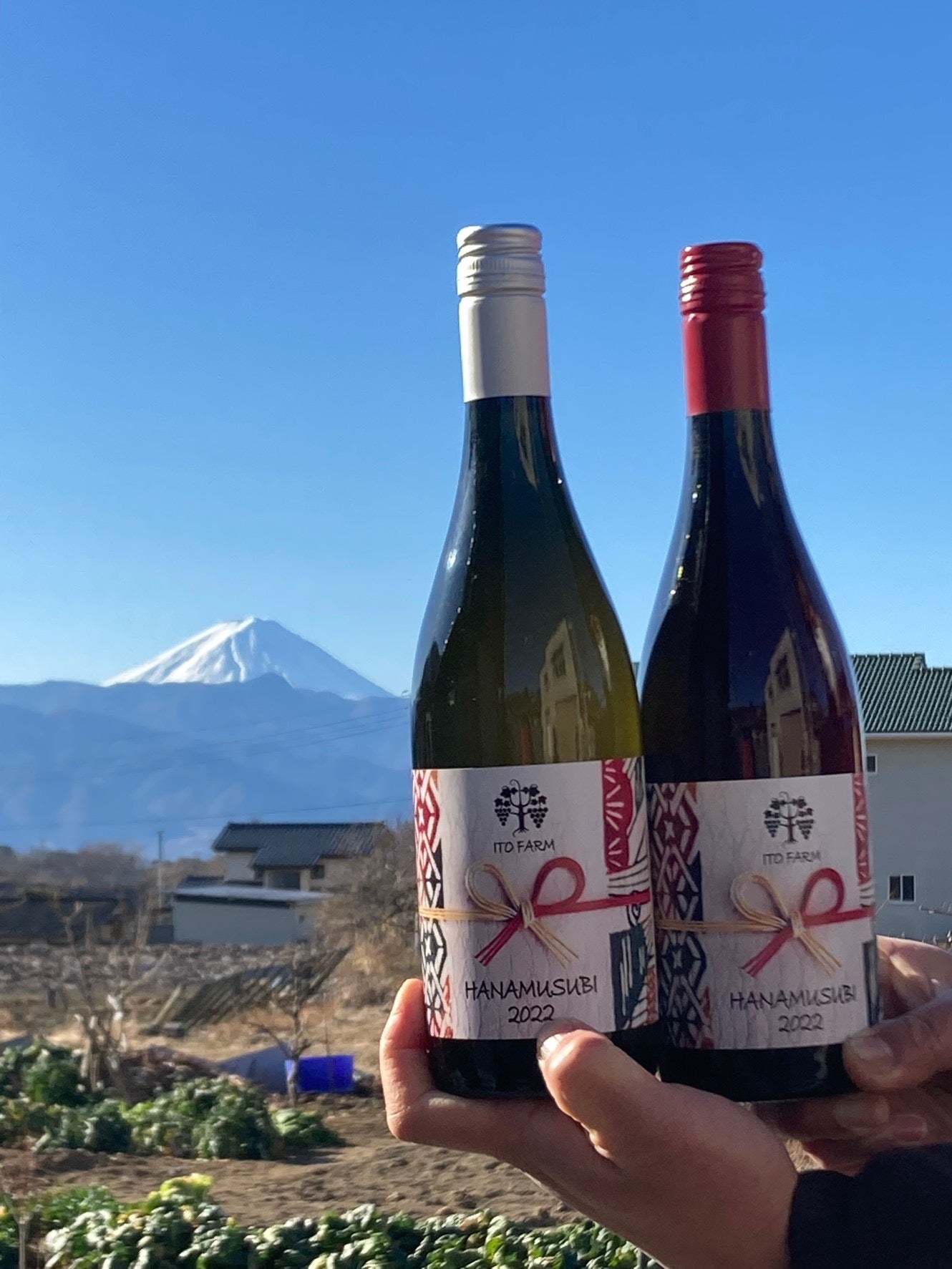
In autumn 2023, Takashi began full production at his own winery, Domaine Ito, in Okazaki. In addition to producing his own wines, he actively accepts custom crush projects for those wishing to make wine from grapes grown in Okazaki.
“I want to be the first penguin of winemaking in the city.”
(“First penguin” is a Japanese expression meaning the first person to take a risk and open a new path.)
Looking ahead, Takashi hopes to challenge himself in the Netherlands and across Europe, sharing the idea that joyful, expressive wines can be made from Japanese table grapes and expanding connections through wine.
The flower knot featured on the wine label represents a Japanese cultural symbol of connection, expressing his wish that the happiness received from nature’s gifts will be passed from one person to another.

